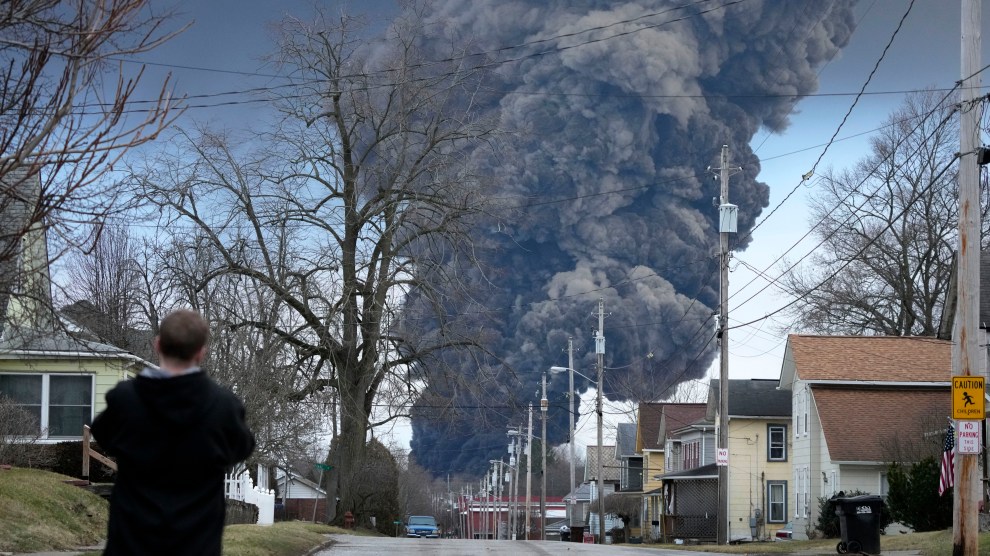
Gene J. Puskar/AP
In East Palestine, Ohio residents are unsure of whether or not it’s safe to return to their homes after a train derailment in the area forced officials to do a “controlled release” of vinyl chloride, a “colorless compound that is a human carcinogen and can be deadly if inhaled” into the air to avert an explosion.
The trepidation seems unsurprising. Vinyl chlorine is, again, “toxic stuff.” The smoke plume generated from the release could be seen for miles; it changed the color of the sky, making the area look like it had been augmented by CGI. It also seems very reasonable given that the area reportedly has become hostile to other forms of life, with residents reporting that their pets dying unusually and spotting dead fish floating through rivers nearby.
Still, local officials have said it is now safe to return. Federal and local officials have told residents that the water is safe to drink and that their air is clean. They note that expert reviews of air quality show nothing “threatening or concerning” in the air. (Of course, if they are incorrect, it would not be the first time officials have told people it is okay to drink water that is indeed unsafe to drink.)
“I’ve watched every news conference and I haven’t heard anything that makes me think that this is a data-driven decision,” East Palestine resident Maura Todd, told the Washington Post, referring to guidance that it was safe to come back. “We don’t feel like we have a whole lot of information.” Other residents of East Palestine expressed similar sentiments to the paper, saying that the air still smelled like chlorine and burned their eyes.
People like Todd in East Palestine probably feel like they haven’t been given a lot of information because they haven’t been given a lot of information. Besides being told that cancerous vinyl chlorine would be released into the air, the Environmental Protection Agency and the National Transportation Safety Board have not released a full list of chemicals that could have been released in the crash.
Earlier in the week, Norfolk Southern—a company that does over $9 billion a year in revenue; that has a market capitalization of $55 billion, and $456 million in liquid assets—pledged a $25,000 donation to the local Red Cross along with promises to assist. Another gift option? The company fought against union efforts that advocated for safer working conditions aimed at preemptively avoiding such derailments and paid sick leave. The legislation is on the table to give railroad workers much-needed rest is still on the table. Maybe consider pushing for that, too.

















